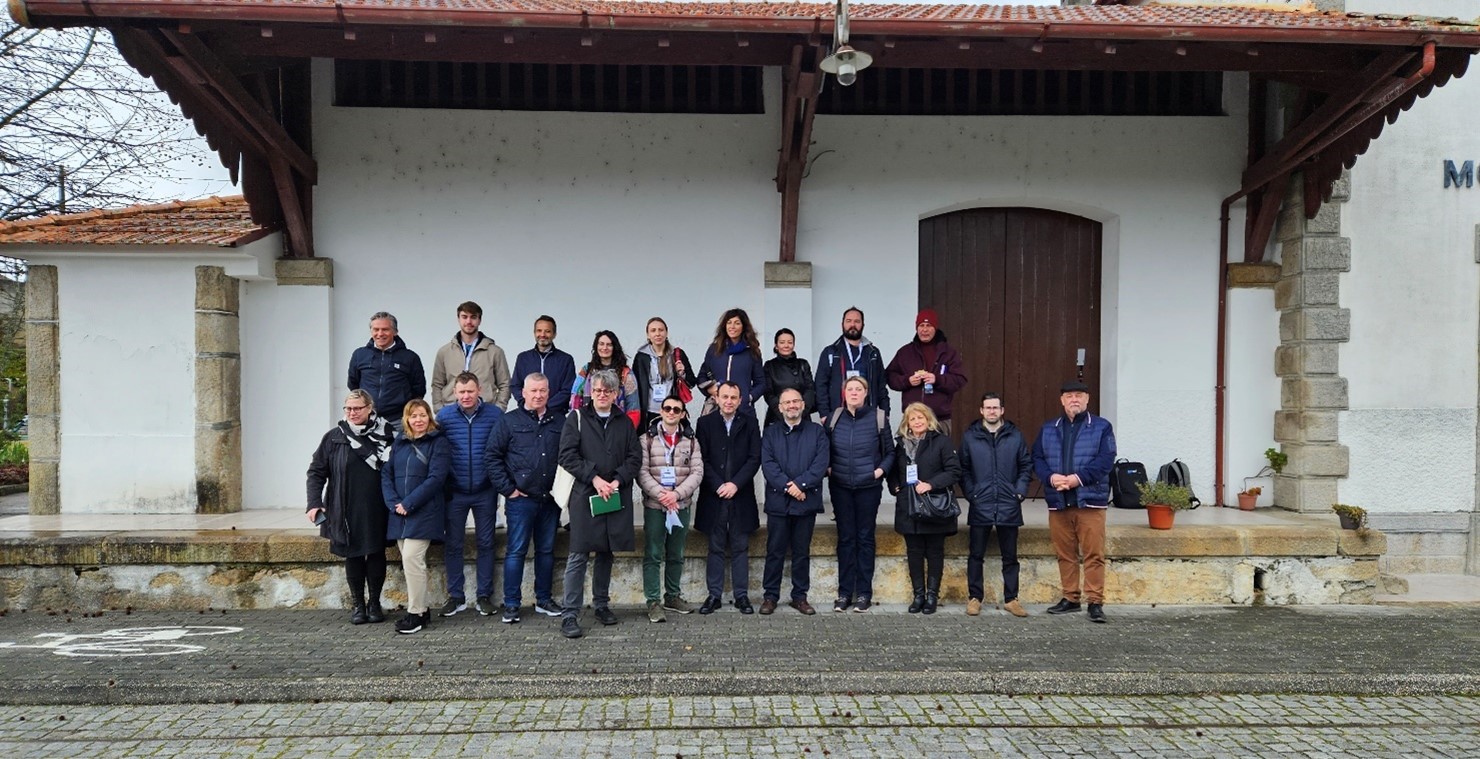A warm welcome during the opening session
The opening session featured key figures such as Nuno Martinho, Executive Secretary of CIM Viseu Dão Lafões, João Paulo Gouveia, Vice-President of Viseu Municipality, Nadia Carboni from Unione della Romagna Faentina (Lead Partner of the ECONNECTING network), and Roland Krebs, URBACT Lead Expert.
According to Nuno Martinho, the ECONNECTING project “is very important, as it is dedicated to mobility between urban and rural areas, a topic that is very dear to us, not least due to the demographic characteristic of the region”. For the Executive Secretary of CIM Viseu Dão Lafões, in fact, the development of social and territorial cohesion is directly linked to the several international projects in which CIM is involved.
João Paulo Gouveia, Vice-President of Viseu Municipality, highlighted Viseu's robust transport system necessary to handle the transit of people and goods coming and going to the coastal area. “There is still a lot of work to do, specifically in raising awareness for the shift towards public transport and softer modes”, he stated.
During the opening session, the network’s team leader coordinator, Nadia Carboni, expressed her appreciation for Viseu’s good practices and stressed the importance of rural-urban connections, since “around the eighty percent of Europe is made of towns and villages”.
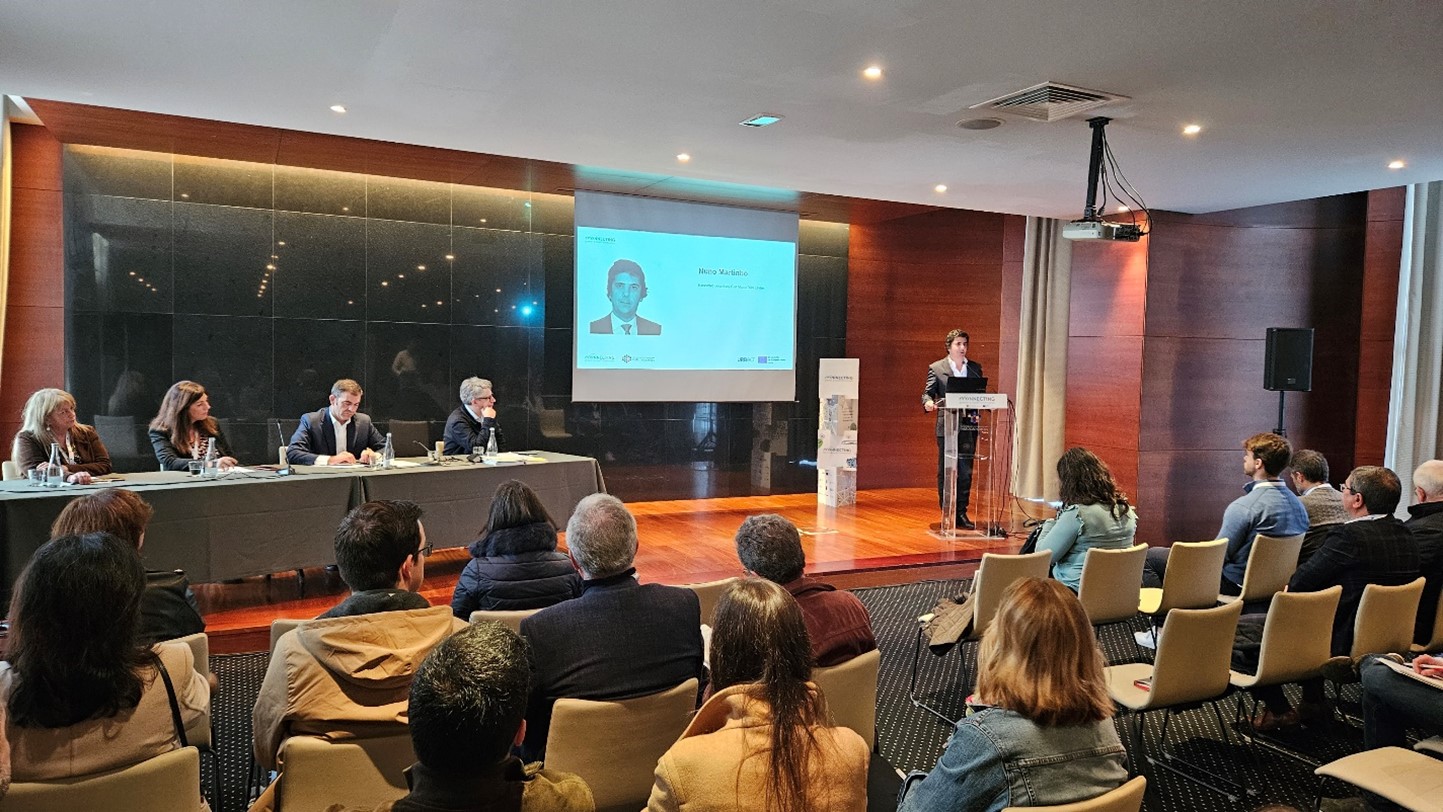
30 Minute Territories and Strategies for Humanized Mobility
CIM Viseu Dão Lafões showcased two noteworthy practices during the meeting:
1. Ir & Vir (Go and Return) - Flexible On-Demand Transport: a pilot project offering Urban-Rural links in Viseu Dão Lafões. This initiative, presented by José Carlos Almeida, aims to expand and reinforce the offer of public passenger transport, ensuring adequate coverage in areas with lower demographic. Participants had the opportunity to experience the service firsthand during the second day of the TM. This pilot project provides Urban-Rural links in Viseu Dão Lafões, while supporting local economy (taxis), reducing public transport costs, and providing better services for local population. Already over 20.000 on demand rides have been provided in one year with a direct investment of around 100 thousand euros.
2. Smart Mobility Platform: Miguel Castro Neto from NOVA IMS, a strategic partner of CIM Viseu Dão Lafões in Digital Transition, presented a Digital Solution that integrates relevant data from various sources to support decision-making in mobility. This platform is a crucial component of the region's commitment to a greener and more connected community.
Two days working meetings. Sharing good practices and peer learning
For two days, different methodologies (Break-Out Sessions / Poster Presentation / Peer Review Learning / PlaceGame Workshop) implemented by the Lead Expert, Roland Krebs, allowed all participants to debate and analyze, not only the local challenges and good practices from Viseu Dão Lafões, but also to reflect on what can be transferred for their local context.
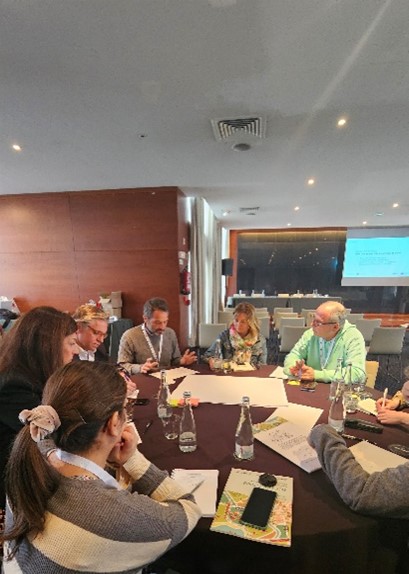
Site visits in Moçâmedes and São Pedro do Sul
The attendants had the opportunity to visit the Village of Moçâmedes and São Pedro do Sul to learn about local projects and infrastructure. In Moçâmedes, they were welcomed by the Mayor of Vouzela, Carlos Oliveira, and learn more about different projects, such as the EcoPista (green way) do Dão. In Viseu Dão Lafões the old railway line – Linha do Dão – was deactivated in 1988 and transformed in 2011 into the Ecopista do Dão, the largest in Portugal with 50kms length and an incredible scenery surrounded by the Estrela and Caramulo mountains and Dão and Mondego rivers. This Ecopista besides being a mobility option, mainly for recreational purposes, also promotes the territory and its touristic products: Nature Tourism; Health and well-being tourism; Cultural and religious circuits; Gastronomy and Wines.
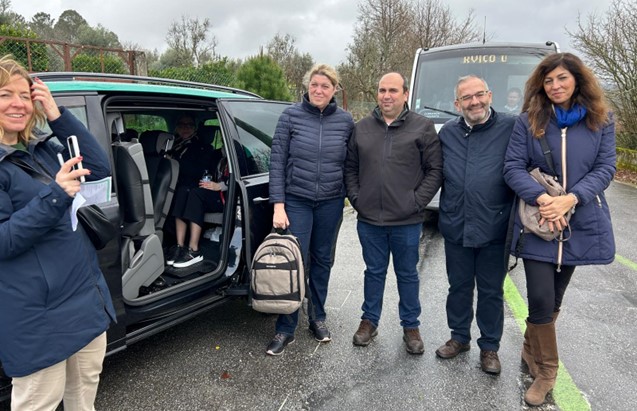
After Moçâmedes, the participants visited São Pedro do Sul, famous for the thermal baths dating back to pre-Roman times. The Mayor Vitor Figueiredo welcomed the delegation in the Mobility Transport Hub that was recently opened in São Pedro do Sul and presented this excellent example on how to create intermodal solutions in small urban areas. In this Mobility Hub, people can make the shift from bus to soft mobility: either by walking along the routes made over the last years connecting the Hub with the main squares, facilities, and services of this urban center; or by cycling with renewed bicycle lanes and a bike sharing system located just outside of the Mobility Hub.
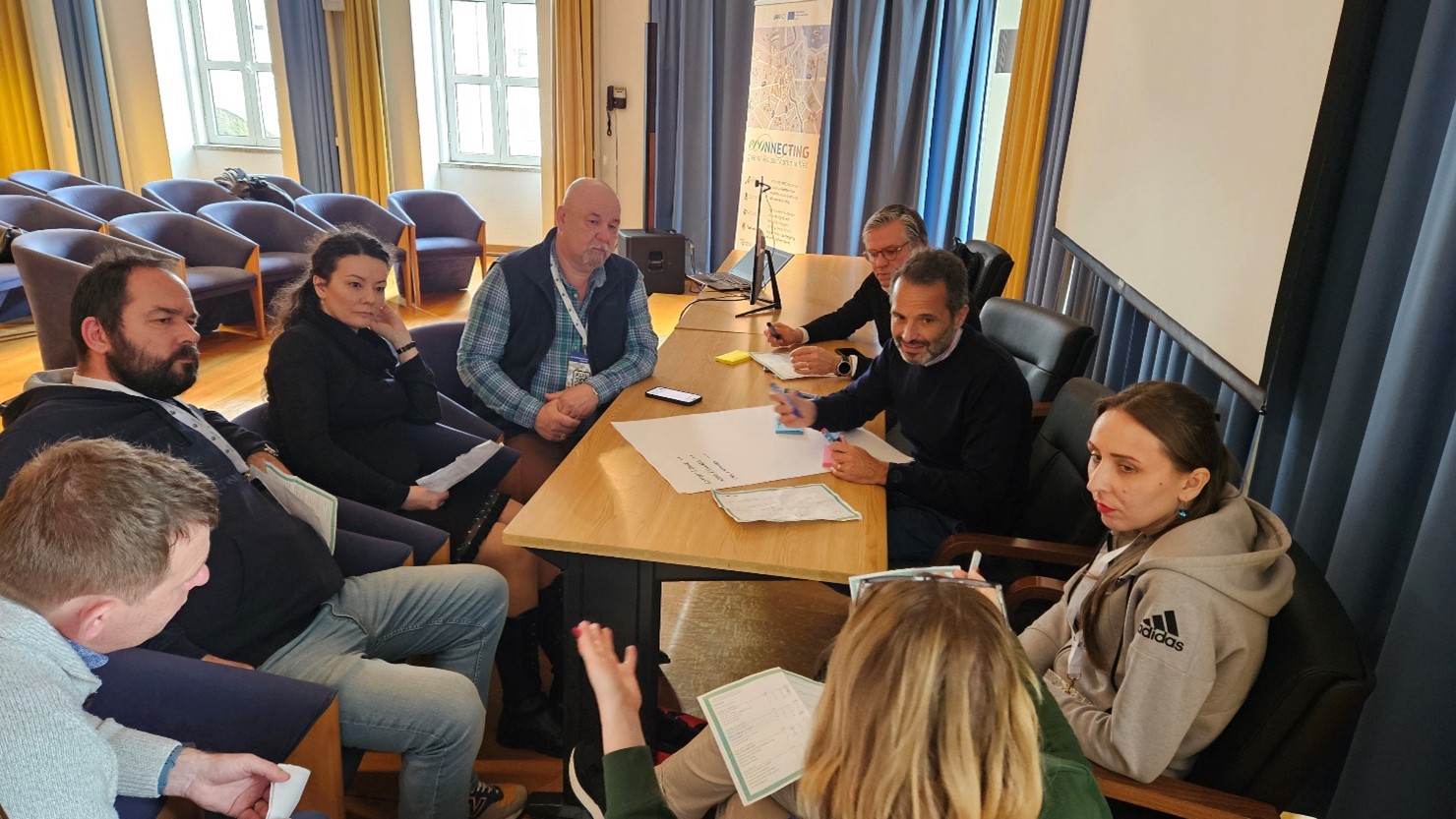
Next Stop: Ennis, Ireland
The second meeting of the ECONNECTING network was a platform for fruitful discussions, sharing of best practices, and collaborative efforts toward sustainable mobility. These two productive and hard-working days in Viseu set the stage for the third transnational meeting. This upcoming meeting will focus on funding strategies, with an ad-hoc expert providing insights. Furthermore, the focus will also lie on the areas for action of the IAP and on the develpment a preliminary structure of the Integrated Action Plan (IAP).
The journey continues, with the next stop in Ennis, Ireland, promising further advancements for the nine European partners of the ECONNECTING network in developing lasting solutions for the shared challenges of urban and rural connectivity.
